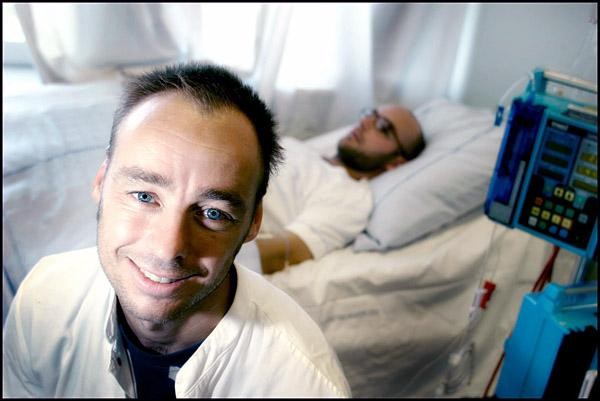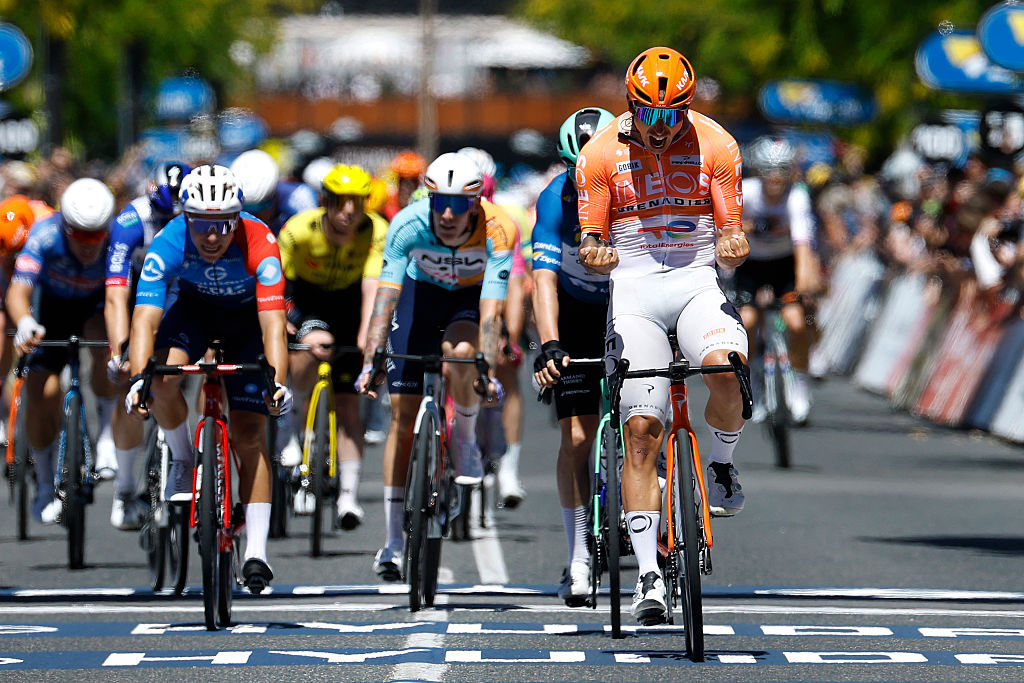Damsgaard faces criticism over anti-doping programme
Doctor Rasmus Damsgaard has recently become the subject of public criticism by his former boss, who...

Doctor Rasmus Damsgaard has recently become the subject of public criticism by his former boss, who has questioned his ethics and independence in running the anti-doping programs of CSC/Saxo Bank and Astana in an interview with the Danish newspaper Berlingske Tidene. Damsgaard was once heralded as the creator of the "best doping control program world-wide", but has now split with the hospital which helped make the program a reality.
One of the issues which drove a wedge between Damsgaard and Dr. Bo Belhage, the chief of medicine at the Bispebjerg Hospital in Copenhagen, Denmark, was the return of Lance Armstrong and word that the American would be subject only to his own personal testing regime under Dr. Don Catlin.
Damsgaard, who began the testing paradigm in 2006 with then-Team CSC did so under contract with the Bispebjerg Hospital. Dr. Belhage helped start the programme, but began to have concerns about how Damsgaard was running it which culminated in the hospital refusing to extend its contract with Damsgaard. The latter subsequently took the programme and started his own for-profit company called Radar which is now in charge of testing riders.
Among Belhage's concerns were the payments to Dr. Eufemiano Fuentes, the man at the heart of the Operación Puerto scandal, made by Frank Schleck "for training plans", a gift of an expensive team bike given to Damsgaard from CSC/Saxo Bank manager Bjarne Riis and, finally, the rumour that Astana's newest recruit, Armstrong, would not submit himself to the testing by the Danish doctors.
Belhage felt that it was imperative that Armstrong be treated like the rest of the team. "We must not only see his values - we must also take the samples. We should be the ones who are knocking on his door at two o'clock at night saying, 'Lance, now you piss in the pot.' That's it. ... I would not be involved if there was one Astana rider who had a free ride."
The Astana team emphatically countered the Armstrong rumour, stating that he would indeed be subjected to the same controls as the rest of the team in addition to those performed by Dr. Catlin.
"Lance Armstrong did not refuse anything. [I have] no idea who invents such things. He already underwent Damsgaard controls," Astana spokesman Philippe Maertens told Cyclingnews.
The latest race content, interviews, features, reviews and expert buying guides, direct to your inbox!
For-profit venture raises ethical concerns
The ethical concerns with Damsgaard's new company run deeper for Belhage, who ensured that the payments from the teams were kept "at arm's length" from the testers when the system was run through his hospital. The original agreement called for the team to pay the hospital, which would then pay Damsgaard, and that there were to be no money, gifts or other benefits to be passed directly to Damsgaard by the team.
Belhage found that Damsgaard, by accepting the bike from the team, violated ethical standards and compromised Damsgaard's objectivity. Now that Damsgaard has created his own company, Radar, of which he is 100 percent owner, there is a direct economic connection between the team and Damsgaard which jeopardizes the project's legitimacy.
The teams, however, do not share this concern, and Damgaard and his new company are now directly employed by Saxo Bank, Astana and two more teams, according to the Danish story.
Damsgaard defended himself in a separate report in the same paper, saying, "I have never concealed the fact that I am not doing this for philanthropy. I have accumulated a lot of knowledge. And yes, I make money at it ." He also claimed that the results go first to the UCI before he even sees them.
The concept is not unique to Radar, as the Slipstream/Garmin and High Road/Columbia programmes were both run by the now-defunct Agency for Cycling Ethics in 2008 and by Catlin's Antidoping Sciences, Inc., both of which are for-profit concerns.
Saxo Bank spokesman Brian Nygaard didn't see a problem with the change. "Rasmus has set up a private firm to continue his work. It is not a novelty. There was also a private company working for Columbia and Slipstream, before it went bankrupt. And the fact that it went bankrupt tells me that this is not something people do to make a lot of money."
As to whether or not he should have taken the bike, valued at approximately $8,000 (6,000 euros), from Riis, Damsgaard did not see the problem. "I do not think there is any problem in it. It does not change my job."
